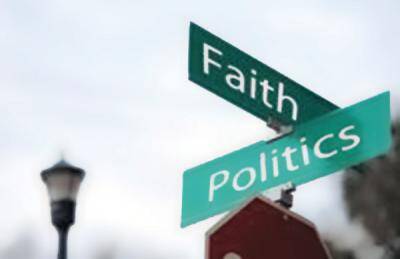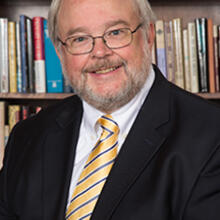The race is on. Hillary Clinton is searching for “everyday Americans” to persuade us she is one of us. Marco Rubio campaigns as the voice of a new generation. Jeb Bush may be a general election candidate without a primary election constituency. Scott Walker uses his victories over unions to say he can confront other adversaries. Martin O’Malley warns against dynasties and looks for an opening. Other candidates seek an opportunity to break through. Washington insiders hope for Bush versus Clinton, a back to the future strategy.
One thing can be counted on. A majority of Catholic voters will support the winner, as they have done in 10 of the last 11 presidential elections. E. J. Dionne points out “there is no Catholic vote and it is really important.” The greatest differences involve Catholics who go to church weekly (57 percent supported Romney) and those who do not (56 percent supported Obama) and Hispanics (69 percent are or lean Democratic) and other Catholics (53 percent are Republican or lean that way).
Given the impact and diversity of Catholic voters, a key moment will be Pope Francis’ address to Congress. I have already offered in Americamy thoughts on his message and impact.
Another factor is the U.S. bishops’ updating of Forming Consciences for Faithful Citizenship. This statement, issued every four years in the year preceding a presidential election, calls on Catholics to be informed and principled voters. It is widely used as a moral framework for political choices and sometimes misused to advance partisan agendas. As someone who has helped bishops develop these statements in the past, here are some challenges for this year’s edition.
First, the statement needs to reflect Pope Francis’ principles and priorities. Francis does not bring new doctrine but new urgency and authenticity. He warns against obsessing on sexual morality in public life, without retreating from the obligation to protect unborn children, vulnerable elderly people and family life. His powerful metaphor of a “throwaway culture” offers new context to call Americans to defend the lives and dignity of all and to care for God’s creation.
Second, bishops challenge Catholics to reject the intrinsic evils of abortion, euthanasia, torture and racism. These negative obligations continue with a million abortions a year, advocacy of assisted suicide, debates on torture and divisions on racial injustice. Faithful Citizenship insists there are also affirmative obligations to care for the poor, to promote family life, to pursue peace and justice. In our polarized environment, some insist the first are matters of “principle” and the second are issues of “prudential judgment.” This oversimplified formulation ignores that resisting evil requires prudential judgment. In addition, the misuse of the term “prudential judgment” can ignore moral principles and excuse inaction on immigration and poverty to respond to more powerful interests.
Third, bishops should challenge rhetorical obsession with the “forgotten middle class” or “everyday Americans” without a moral priority for those at the bottom. Catholics should join Pope Francis in looking at economics and politics from the bottom up and the outside in, needed counterpoints to the Washington status quo. For Christians, poll-tested rhetoric should yield to the soul-testing measure of care for “the least of these.”
Fourth, the killing and persecution of Christians and others because of their faith demand much greater priority. An emphasis on protecting religious ministries from unjustified governmental mandates in the courts should not overshadow the urgency of action to protect the lives of believers around the world.
Polling and pastoral experience demonstrate that bishops should not be apologists for any administration, chaplains for any party, cheerleaders for any candidate. They should help us avoid the temptation to adapt our faith to advance our politics.
The papal address to Congress and an updated Faithful Citizenship statement can provide a moral framework and a powerful example for how to carry out Francis’ description of the political vocation of Catholics: “Catholics tasked with political life must keep the values of their religion before them, but with a mature conscience and competence to realize them.”








